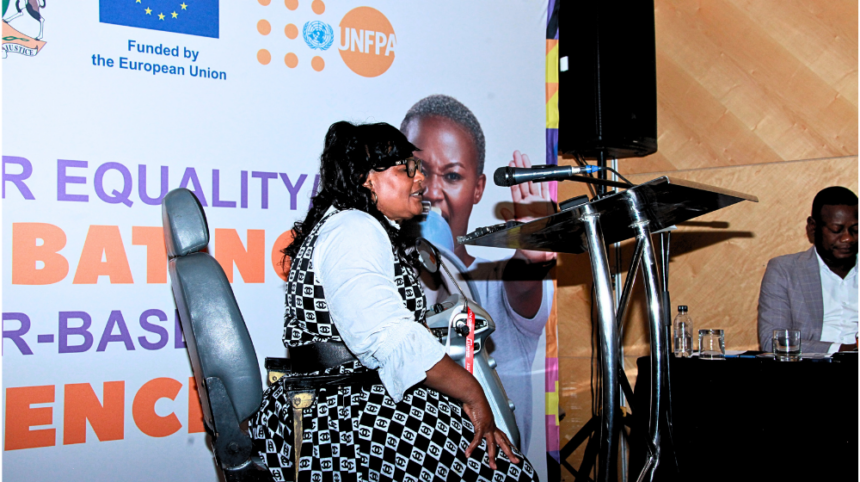Disability affairs’ deputy minister Alexia Manombe-Ncube said most political parties do not make provision for people with disabilities, particularly those with hearing challenges.
“The only challenge we are experiencing is the challenge with hearing impairment – the deaf people – as they are being called. You will find that somebody might be announcing something, but there is no sign language interpreter, even while you are in the queue and there is an announcement,” she stressed. Based on her observations, only a few political parties make provision for a sign language interpreter.
For many, it is not even a consideration.
“In terms of political parties, they don’t have sign language interpretations when they conduct their rallies – most of them, I can say, or none. Even as Swapo, we have sign language interpretations, but it’s not all the time. There are some interpretations, but not at all the rallies. We have these challenges for deaf people to really hear the message of different political parties.
They need to have this information as citizens of this country. They have that right. But how are they going to know when you go to a party of your choice, but this party cannot even explain what is expected of you as a member?” she questioned.
Her comments come at the back of the Electoral Commission of Namibia (ECN)’s release of the final voters’ register.
In it, the commission provides a detailed breakdown of the different voting demographics.
Official statistics reveal that there are 21 757 registered voters with disabilities.
Broken down, there are 710 registered voters with artificial limbs, visually impaired (3 199), deaf (1 742) and 16 106 in the physical disability category.
ECN’s chief electoral and referenda officer Petrus Shaama said the figures are important to the commission, as they will inform them about the special needs of each voter.
Considerations will be made to ensure every voter exercises their constitutional right without any hindrance.
Reacting to the news, Manombe-Ncube expressed her gratitude, albeit with some reservations.
“In the past, people who are visually impaired had a challenge with securing their vote as those who would assist in guiding them would sometimes choose differently, and not necessarily the candidate or party of the voter’s choice. But with the introduction of braille, that problem has been partially eliminated,” she said.
She is, however, impressed with the commission’s overall readiness to pull off credible, free and fair elections.
“In the queues, when you go there [polling stations], people with disabilities don’t queue up. Once they are noticed, the officials on duty make sure that they give them priority space in the line so that they can go forth and vote.
Many times, where I have also gone myself as a person using a wheelchair, I have not struggled with infrastructure. Where I have gone to vote, they would always be as accessible as possible. It’s user-friendly,” she added.
Register
Handing over the final voters’ register to registered political parties, ECN chairperson Elsie Nghikembua said the event marks the formal commencement of the election phase of the electoral calendar.
The conclusion of the display and inspection period for the provisional voters’ register served as a foundation for the finalisation of the final stage of running the Automated Fingerprint Information System (AFIS), she added.
This was to ensure the integrity of the registration data, as well as the production and release of the final voters’ register.
“Running AFIS is a continuous process executed as part of the security features incorporated in the system in preparation for the production and maintenance of a
final voters’ register for any election. In preparation for the finalisation and production of the 2024 final voters’ register, the commission, through continuous verification of the provisional voters’ registration data released on 29 August 2024, was able to
detect a further 1 875 multiple entries as part of the integral security measures of running AFIS at different stages,” she announced.
She continued: “This represents a difference of 0.13%. The multiple entries (1 875) were detected from applicants who have registered twice using different types of documents, while the previous 13 685 multiple entries reported on the release of preliminary statistics included persons who had used the same identification document. Following these processes, the final voters’ register statistics stand at
1 449 569 registered voters, representing 90% of the eligible voters,” she revealed.
While further reductions show low insignificance on the total number of registered voters during the GRV, “from the perspective of maintaining security measures, this demonstrates capability and effectiveness of the AFIS.
Once again, this was necessary to guarantee the integrity of the 2024 final voters’ register, thereby ensuring that every registered voter only appears once in the voters’ register,” she said.



